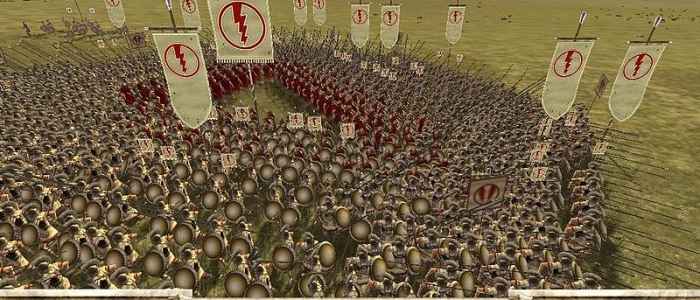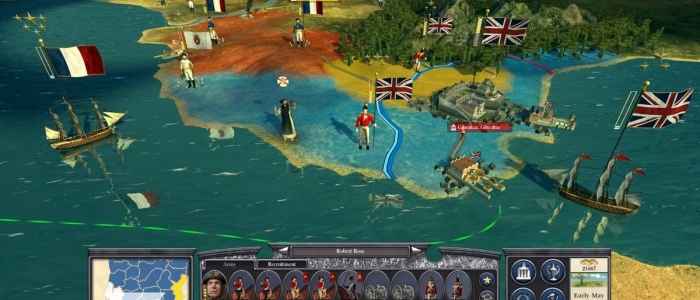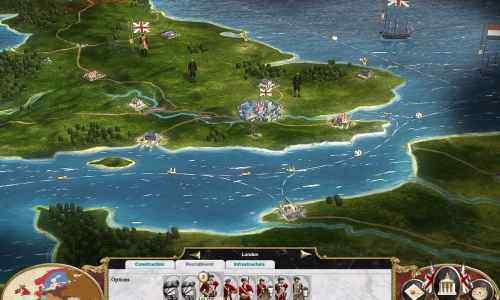How the ‘Total War’ Series Remolds Our Perception of History
History has been subjected to the hands of video game developers for decades now. This is expected—after all, part of the point of video games is to allow players the chance of experiencing events and worlds inaccessible in the present age. It goes with mentioning that violence is a major part of human history, but how such violence is portrayed on the screen does a lot in altering our perception of historical epochs and events.
One very popular series that has spread its fair share of influence on the perception of different historical time periods is the Total War games. Created by The Creative Assembly, the series has been around for about fifteen years now and has captured the attention of a large pocket of PC gamers. You’d be hard pressed to find an avid fan of war games who hasn’t played at least one version of the series.
Depending upon the version, a player is able to control a nation or peoples and guide them through an allotted time period until they reach a goal particular to their faction. For example, in Rome: Total War, arguably the most successful spinoff of the franchise, players begin by choosing between one of the three Roman families, the Julii, Brutii, or Scipii, and lead them in their expansion until the faction is powerful enough to march on Rome itself and the other families. Such expansion is prodded by various missions assigned by the ruling senate. Upon completion of each mission, the player receives rewards that assist in the conquests.

Rome is not the only empire the series has tackled, though. Two editions of the game have been dedicated to Feudal Japan, two more to the Medieval age of Europe, one to the entirety of the 18th century, ranging from the Americas to India, and another to the time Napoleon reigned. The most recent edition of the game, Total War: Attila, follows various barbarian factions as they vie for power over one another during the final stages of the Roman Empire. The Creative Assembly team shows no signs of slowing down the franchise, and considering the wide span of history so far covered, audiences should anticipate new time periods and epochs as the basis for future editions.
Each version of the game contains unique features: Napoleon: Total War allows players to take the role of Napoleon as he and his armies traverse their way to Russia, in a historically accurate pseudo-biography, while in Empire: Total War players can govern colonies in America and India, creating and establishing trade routes to profit from spice and cotton trades, among other items, in order to gain an edge over other nations. Also, almost every version of the game allows for players to reenact famous battles, pitting famous general against famous general on beautifully recreated battlefields.
All of this may sound generic and expected in terms of video games, but the series goes beyond other games of a similar kind when it comes to the heavily layered gameplay. The hallmark stamp of the series is the uniquely balanced gameplay between the micro-management and macro-management of a chosen faction or empire and the real-time control of troops on the battlefield. A player begins in a particular year and is given the control of a nation’s armies, diplomats, merchants, assassins, all while building the necessary infrastructure and gathering the essential resources to stay ahead of the next door neighbors. The game is broke up into “turns”; this can either mean half a year or a full year, depending upon the version of the game, and offers a nice pace to allow a player to feel the weight of important decisions, yet avoid being bogged down in too much detail.
Read any review of the game and one consistent comment is the addictive element present throughout the Total War series. Players of all ages claim the inability to willingly save and exit, refusing to allow the outside world to permeate the intricacies these games create. “Just one last turn” is a common excuse among fans, but the reality is that most don’t break away from the screen until their eyes are red and bleary.

The obvious question is why this happens. Although it may seem simple on the surface—games are fun and engaging, especially when challenging your mental faculties on different levels—the Total War series strikes a different, unconscious chord with players. In being given complete control of a nation, a player is allowed to rewrite history to their liking, at least to some degree. The developers do a nice job in littering the games with intriguing, obscure historical facts; even some of the descriptions of particular events are tinged with irony, suggesting how such a slight occurrence could possibly ever have a major effect on the world.
What do games like this do to history? Absolutely nothing, at least in terms of our current global society. But in terms of the individual, this game series provide a platform to engage in historical epochs and understand the ease in which political leaders and bodies have always, and still do, start wars. The individual becomes a peoples with the Total War series, allowing the virtual troops and cities to become a part of the player’s awareness. It is sad to say that a player may possibly know more about their virtual empire than the actual country they live in.
Here is where the Total War series can bridge the gap. For students living in America, a game like this can open up the borders of the America Revolution and the Civil War in a virtual world. Not only does this series look excellent on the screen (the aesthetic appeal alone would rival most other presentation materials), but the balance between preparing a nation to succeed and actually fighting the opposing armies would allow students to understand that the wars of American history are not the only memorable aspects. By no means should a game ever supplement textbooks and traditional, discussion based learning, but something like this can prove to be an invaluable addition in solidifying the actual movements of armies.
Under proper instruction and supervision, a game like this can even be used as a kind of homework. Imagine a virtual battlefield where every student controls a city and/or army on either the American or British side during the Revolution. Acting as a kind of virtual wiki, the teacher can supervise and make changes, when needed, explaining to the students how a particular battle played out in history. The obvious object for each side would be to win the battle; but for the historically losing side, a new strategy would be needed in order to achieve victory. Although a strong stigma is attached to video games in educational environments, an exercise like this would be a nice bonding experience between students and teaches, allowing for cooperation outside of the classroom under the guise of a video game.
Napoleon: Total War attempts to bridge the gap more than any other game in the series. While every edition provides players with an in-depth analysis of each particular nation at the start of a new campaign, Napoleon: Total War takes this historicity to a new level by actually using famous generals from each major nation of the time (France, England, Austria, Prussia, and Russia), allowing users to control their movements along the continent. The generals even possess historically ascribed traits that affect their battle strategy and efficiency. Empire: Total War is probably the next in line in terms of being historically accurate, but for different reasons. The detailed diplomacy and item trade involved in this version gives players an understanding of what colonialism meant to European nations. Certain colonies even break from their European hosts, depending upon the particular campaign; when this happens it’s really fascinating, as you’re allowed to see the unique troops and cultural buildings that were previously suppressed under colonialism.
The world maps themselves are always recognizable. True to history by name and size, players can easily recognize the rough outlines of our modern day national boundaries. No matter the edition of the game, the maps shine beautifully, changing color and visibility with the seasons. Even the cities and ports change shape and form as they upgrade.

There is much room for awareness of history to grow from this series. The games themselves mainly focus on the greater European continent, including parts of Northern Africa and the Middle East. Other versions of the game focus on Japan, while parts of North America and India were included in Empire: Total War. Obviously, billions of peoples are excluded from the games, but it seems that the developers are cognizant of how much more ground they need to cover in order to catch new audiences’ interest.
It should be obvious that a game like this offers great strategical development for young minds. In fact, unlike other games that fall under the War genre, there is very little bloodshed and violent language, two major pitfalls for parents when looking for appropriate games for their children. Also, there is no bonus for overtly violent behavior in the game. If a player commits too much attention to killing other armies, ignoring the well-being of their own, their empire will crumble and the game will end.
With the advent of smart technology and the influence of the Internet-of-Things, education will surely undergo major developments within the next decade. To ignore such developments would prove harmful, so it is smart to look at the current popular market to see what available resources would provide solid foundations for mixing interactive learning within historical margins. A game series like this enables players to passively assert themselves on the pages of “virtual” history. Similar game franchises, such as the Civilization and Empire Earth series, undertake different historical approaches, all revolving around the build and fight mentality. While they may add their own unique flavor to this dialogue, the Total War series comes closest to fully immersing players in the grip of history. Such a statement may sound dramatic, but humans have been attempting to leave their mark on the world for as long as our records of time have existed. With some alterations, a game like this can vault itself into an educational apparatus, and in many ways already has. In giving players a more detailed, consequential virtual environment to roam and control, something already within grasp, developers can improve the decisions making skills of their audiences while also immersing them in history. But if a game like this is understood merely for its instant gratifications of conquering cities and defeating armies, it will only further serve our ignorance of the horrific wars of history.
While video games and virtual simulation technology carry a hefty price tag and are extremely expensive to acquire, there is no reason to think they will soon lose favor with the public. Students of all ages interact with them in their free time, so there is no reason to not consider seriously implementing such technologies in the classroom. The malleability of a series such as the Total War games would allow for an easy transition of video games into the classroom, while attaching historical importance to the decisions a player/student makes.
What do you think? Leave a comment.











Surely one of the best game series of all time.
Citation needed.
How about a hybrid of “Total War” and “Mount and Blade”.
Think about it you start off alone, but once you become big you can control your army and have an AI control your character. When though you get bored or the battle needs some human to control it you take control of your character and command your army from there.
Mount and Blade is basically an extension of Total War, minus the huge battlefield control. Having both would be tedious and break immersion.
This game series is the pinnacle of PC gaming.
Too bad the world’s first look at a firearm based total war game was Empire, not a great first impression. Fortunately Darthmod has now fixed most of the issues.
The best franchise!
I remember playing the original Total War…God the memories, I can’t believe it has been 15 years since then.
Break the historical setting and do a fantsy total war. Dragons, elves, and goblins as playable factions.
That’s Warcraft.
I don’t know if you have heard or not, but they are doing a Warhammer edition of Total War which should be awesome! The amount of content they have to work with there is absolutely ridiculous!
Shogun 2 Fall of Samurai was effing amazing.
One of the best games in the series without a doubt! Shogun 2, as well, was amazing
Nice article!
I’m sitting here reading this article since I can’t play TWR2 on my high-end PC because of framerate issues.
total war series best pc games ever made no doubt there is no other pc game i would want to play
I still play Medieval 2 the most. Seems like it was the last one before they started to dumb things down to reach out to more people.
Love these games so much.
They need to do a total war: Game of Thrones just so I can kill Joffrey
There are several mods that change Medieval 2 into game of thrones you should look into them
I doubt it will end up in a classroom anytime soon but the Total War game Creative Assembly is currently developing, Warhammer, is an exciting edition to the franchise. Maybe if the new game is a huge success we could see world war, modern war or even future or space war titles sometime soon. It is such a great franchise and the sky really is the limit.
I doubt it will end up in a classroom any time soon but the Total War game Creative Assembly is currently developing, Warhammer, is an exciting edition to the franchise. Maybe if the new game is a huge success we could see world war, modern war or even future or space war titles sometime soon. It is such a great franchise and the sky really is the limit.
Truth be told, the majority of my knowledge of geography comes from playing video games. I know my way around the Caribbean because of Sid Meyer’s Pirates and I know my way around Europe because of Empire: Total War. There’s nothing like have to defend an empire to teach geography. I can honestly say that I know where Bavaria is because I’ve had to invade it before. That said, I doubt we’ll use video games in education any time soon.
The total war franchise has worked very hard over the years to earn our loyalty and love.
I have absolutely fallen in love with the Total War franchise and could certainly see its benefits within the classroom. More specifically, I think it would work very well within an economics or geography class. For instance, consider if students were each given different rules they had to follow while playing the game such some could only charge high tax rates while others charged low tax rates. Then, as the educator, ask how would this economic function would affect the ability to raise an effective army or the effects it has on the mood of the civilian population. (I can build a bigger army with more money, but my citizens won’t be happy paying very high taxes). I think there are a number of lessons that can be learned within the context of geography and economics. The only concern I would have using this game in the classroom is the time it takes to play the actual game.
I could see the Total War games being used for educational purposes. But the game takes a very long time to understand and then play effectively. Not very practical for the classroom. But for take home assignments and extra curricular projects the game is perfectly suited. I think it would be a great experiment and lesson to release the kids to play their own campaigns to the finish, then go over the class’ successful strategies and failed attempts. A teacher could then frame a lesson about a time in history that relates to the game period using the students’ own experiences. This would be fun and challenging for the kids because some strategies that worked would only affirm the paths of history. Others might completely disagree with the history books, providing a rich field for in depth analysis of the possibilities of chance and circumstance.
Nice Article! When I took a Military history class last year we briefly talked about using total war as a sort of supplement, but nothing ever came of it. I definitely think it would get kids more interested in history.
Total War games always get me interested in the historical basis for them.
Personally, I would be more sceptical of using the Total War series for use in a history classroom, on the sole basis that this does not illustrate border shifts as they actually occurred, but rather simulate, through game play, multiple possibilities, given the pre-existing parameters established by the designers. With that said, there are enough features in the game play that would make a useful supplement to history,provided it was done upon the accord of the individual playing the game. There are also some redeeming features, which would allow for aspects of education. For instance, the military, and naval formations can be a useful supplement in learning strategy. Further, the most important feature would be the fact that the person playing the game is put in the shoes of the ruler. This effectively gives the game player an idea of some of the geopolitical considerations that the ruler faced, in that time.